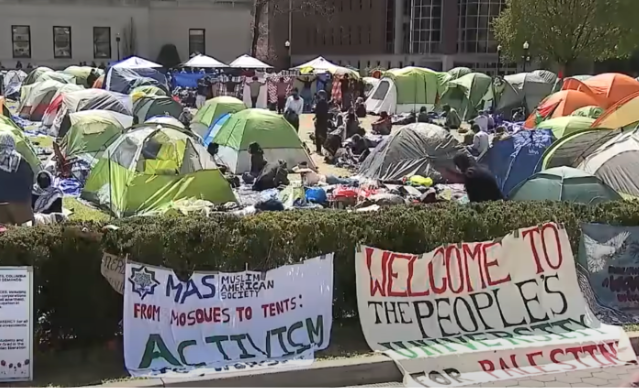Breaking News
Columbia University President Steps Down Amid Israel-Palestine Conflict Protests

Source: YouTube
The resignation of Columbia University President Minouche Shafik is the latest in a series of high-profile departures from academic leadership, driven by the increasingly volatile atmosphere on college campuses. Shafik’s decision to step down highlights the mounting pressure university leaders face as protests and counter-protests over the Israel-Palestine conflict continue to polarize students, faculty, and administrators alike.
Tensions Leading to Shafik’s Resignation
Columbia University, like many other institutions across the United States, has become a flashpoint for debates surrounding the Israel-Palestine conflict. As student groups and faculty members on both sides of the issue voice their opinions more vocally, the environment has grown increasingly contentious. For university leaders, navigating these complex and deeply emotional debates has proven to be an immense challenge. In Shafik’s case, the pressures appear to have reached a breaking point.
Shafik, who assumed the role of Columbia University President in July 2023, faced growing criticism from various campus factions. Her attempts to maintain neutrality and foster dialogue between opposing groups were met with resistance from all sides. For some, her leadership was seen as too accommodating to protestors, while others accused her administration of stifling free speech by not taking a definitive stance on the conflict. The result was a campus environment that became increasingly divided, with Shafik caught in the crossfire.
A Broader Pattern in Academia
Shafik's resignation is not an isolated incident. Across the country, university presidents and administrators have found themselves in similarly untenable positions as the Israel-Palestine conflict intensifies on campuses. The conflict, which has long been a subject of academic debate, has taken on new urgency in recent years. The rise of social media has amplified voices on both sides, making it harder for university leaders to manage the discourse within their institutions.
At Columbia University, the challenges Shafik faced are emblematic of the broader struggle within academia to balance free speech, student activism, and administrative responsibility. The resignation of a high-profile leader like Shafik sends a clear message: the role of a Columbia University president has become increasingly fraught with political and social pressures, particularly when it comes to issues as polarizing as the Israel-Palestine conflict.
What’s Next for Columbia University?
With Shafik's departure, Columbia University now faces the daunting task of finding a new leader who can navigate these turbulent waters. The university's Board of Trustees will need to consider the lessons learned from Shafik’s tenure as they search for her replacement. The next Columbia University President will likely need to have not only strong academic credentials but also the diplomatic skills to manage a deeply divided campus.
The situation at Columbia also raises broader questions about the future of academic leadership in an era of heightened political activism. As protests and counter-protests over issues like the Israel-Palestine conflict continue to shape the discourse on campuses across the country, university leaders will need to find new ways to engage with their communities while upholding the principles of free speech and academic freedom.
All Eyes on Columbia University
In the coming months, all eyes will be on Columbia University as it seeks to move forward from this challenging chapter. The selection of the next Columbia University President will be a critical decision, not just for the institution but for the broader academic community grappling with similar challenges.
How do you solve the growing problem of academic institutions dealing with student protests over matters beyond the school’s scope? Tell us what you think.
